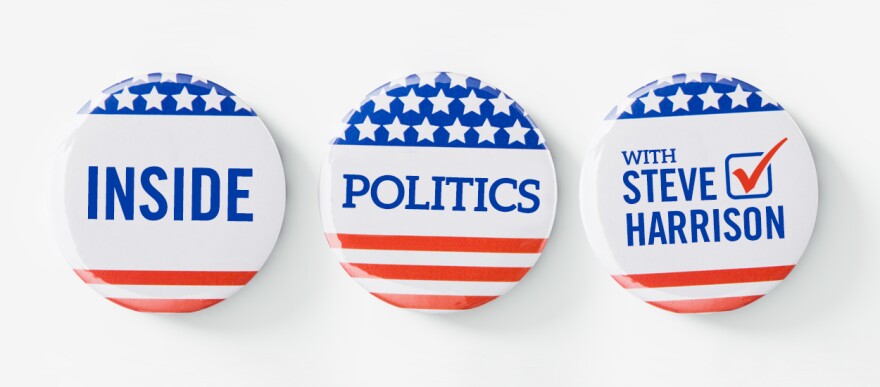Charlotte City Council members say that meeting in private about Major League Soccer helped them get the best deal for taxpayers.
And some are frustrated that information about MLS negotiations have been leaked. Here’s Republican Tariq Bokhari, who talked about the need for secrecy on WBT.
“But confidential information, no matter what the topic, and you are going to leak that out to the detriment of your city, to taxpayers, and to many businesses…It is irresponsible, and you should be ashamed of yourself if you are doing that,” he said.
In a follow-up interview, Bokhari was less intense – but still a defender of meeting behind closed doors.
“There are cases, and I have experienced this first hand in the last two years, where you have to do things in closed session,” he said.
But a number of former elected officials say not so fast.
Democrat John Autry, a former city council member who is now a state legislator, said the current soccer negotiations about using taxpayer money to renovate Bank of America Stadium are similar to a 2013 city debate about spending $75 million in public money to improve the stadium. He was on council then, and it was also held behind closed doors.
Looking back, he said the discussions six years ago - like today’s soccer debate - should have been in open session.
“I don’t think there was ever anything that sensitive about the discussion to have warranted the closed door session,” he said. “But that wasn’t my call.”
Here’s former Republican council member and mayoral candidate Kenny Smith about this year’s soccer negotiations:
“I think you can make an argument that they could have held the conversations in public,” Smith said. “I think you can make the argument that we weren’t necessarily competing with another city, and there was no real secrecy behind it, and that they could have had a full public vetting.”
There were two other cities competing for a soccer team – Phoenix and Las Vegas – but the competition wasn’t necessarily between the three cities. It was between Carolina Panthers owner David Tepper and the other two ownership groups.
State law requires that local governments discuss personnel issues behind closed doors. When cities or towns are pursuing economic development projects, local governments have the option of meeting in closed session, but it’s not required.
Another Republican, Jim Puckett, a former county commissioner who is running for his old seat, said companies planning to relocate often want secrecy, in part, because they haven’t told their employees they may be packing up. But he said the plan to spend $110 million improving Bank of America Stadium is different.
“This is not really about the relocation of a business,” he said. “This is about city tax funds being used to update an existing asset, and there’s no secret.”
Council members have said they met in private so they could discuss negotiating strategy in private, to get a better deal. As part of that, they have declined to say how much money the city has available in tourism taxes, which are levied on hotel rooms, rental cars and restaurant and bar tabs.
They have said that if Tepper knew how much money they had, that could make it harder for the city to get the best deal.
Puckett said that’s not a valid reason.
“I’m not so sure he doesn’t have the right to know what’s there, just like every other citizen has a right to know,” Puckett said. “I think that’s public information.”
Former council member Michael Barnes, a Democrat, said he believes a closed session is needed, to give council members the ability to speak freely. But he’s also sympathetic to Puckett’s argument that information about how much money the city has should be disclosed.
Democrat Patsy Kinsey, who has served as a council member, county commissioner and mayor, said city officials can say no to a deal they don’t like. And having the public know how much money is available wouldn’t be a disadvantage.
“I don’t know what’s so secret about it,” Kinsey said. “The only thing I can figure out is that’s an awful lot of money, and maybe if it had been an open meeting, it would have been discussed…perhaps they were trying to limit input from the public. I don’t know.”
Council members will take a public vote on the incentives, and people will be able to speak about the deal. But with MLS announcing on Tuesday that Charlotte has been awarded an expansion team, it appears a majority of council has already decided.
That’s similar to what happened with the Republican National Convention, a discussion that – like soccer – initially took place in closed session.
When activists criticized the city’s decision to host, convention supporters said it was too late, and that the council needed to follow through with its closed session support for the RNC.
Former mayor Jennifer Roberts, a Democrat, said the public needs to be involved sooner.
“If it is completely done, signed and agreed upon already, and it’s just a show when they have the actual vote in public, then I think they will be missing out on some of the upside and some of the positive things that could have happened if the public input had happened before everything was finalized,” Roberts said.
There is an announcement Tuesday at 10 a.m. outside the Mint Museum in which MLS is expected to award Charlotte its 30th team.


This article first appeared in the Inside Politics newsletter, which takes you behind the headlines to provide context for the decisions made by local political and other government leaders. The newsletter is sent every Friday. Sign up to receive the next one.


